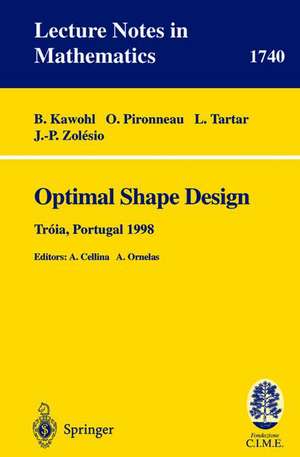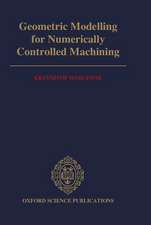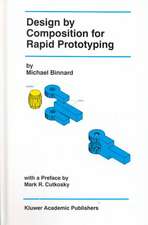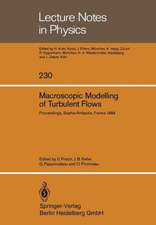Optimal Shape Design: Lectures given at the Joint C.I.M./C.I.M.E. Summer School held in Troia (Portugal), June 1-6, 1998: Lecture Notes in Mathematics, cartea 1740
Autor B. Kawohl Editat de A. Cellina Autor O. Pironneau Editat de A. Ornelas Autor L. Tartar, J.-P. Zolesioen Limba Engleză Paperback – 16 noi 2000
Din seria Lecture Notes in Mathematics
- 17%
 Preț: 360.43 lei
Preț: 360.43 lei -
 Preț: 459.92 lei
Preț: 459.92 lei -
 Preț: 121.41 lei
Preț: 121.41 lei -
 Preț: 175.68 lei
Preț: 175.68 lei -
 Preț: 197.00 lei
Preț: 197.00 lei -
 Preț: 279.76 lei
Preț: 279.76 lei -
 Preț: 477.66 lei
Preț: 477.66 lei - 17%
 Preț: 361.89 lei
Preț: 361.89 lei -
 Preț: 252.37 lei
Preț: 252.37 lei -
 Preț: 353.99 lei
Preț: 353.99 lei -
 Preț: 138.88 lei
Preț: 138.88 lei -
 Preț: 152.61 lei
Preț: 152.61 lei -
 Preț: 116.67 lei
Preț: 116.67 lei -
 Preț: 102.77 lei
Preț: 102.77 lei - 17%
 Preț: 365.53 lei
Preț: 365.53 lei -
 Preț: 396.76 lei
Preț: 396.76 lei - 17%
 Preț: 362.15 lei
Preț: 362.15 lei -
 Preț: 396.13 lei
Preț: 396.13 lei -
 Preț: 357.80 lei
Preț: 357.80 lei - 17%
 Preț: 362.31 lei
Preț: 362.31 lei -
 Preț: 403.81 lei
Preț: 403.81 lei - 17%
 Preț: 361.73 lei
Preț: 361.73 lei -
 Preț: 499.87 lei
Preț: 499.87 lei -
 Preț: 457.03 lei
Preț: 457.03 lei -
 Preț: 395.91 lei
Preț: 395.91 lei -
 Preț: 459.00 lei
Preț: 459.00 lei -
 Preț: 487.57 lei
Preț: 487.57 lei -
 Preț: 424.01 lei
Preț: 424.01 lei -
 Preț: 487.57 lei
Preț: 487.57 lei -
 Preț: 330.55 lei
Preț: 330.55 lei -
 Preț: 325.75 lei
Preț: 325.75 lei -
 Preț: 350.30 lei
Preț: 350.30 lei -
 Preț: 331.31 lei
Preț: 331.31 lei -
 Preț: 408.37 lei
Preț: 408.37 lei -
 Preț: 328.25 lei
Preț: 328.25 lei -
 Preț: 421.28 lei
Preț: 421.28 lei -
 Preț: 276.08 lei
Preț: 276.08 lei -
 Preț: 424.60 lei
Preț: 424.60 lei -
 Preț: 422.05 lei
Preț: 422.05 lei -
 Preț: 505.01 lei
Preț: 505.01 lei -
 Preț: 422.05 lei
Preț: 422.05 lei -
 Preț: 274.93 lei
Preț: 274.93 lei -
 Preț: 335.16 lei
Preț: 335.16 lei -
 Preț: 422.27 lei
Preț: 422.27 lei -
 Preț: 497.49 lei
Preț: 497.49 lei -
 Preț: 272.81 lei
Preț: 272.81 lei -
 Preț: 428.04 lei
Preț: 428.04 lei -
 Preț: 376.22 lei
Preț: 376.22 lei -
 Preț: 427.10 lei
Preț: 427.10 lei -
 Preț: 325.92 lei
Preț: 325.92 lei
Preț: 460.75 lei
Nou
Puncte Express: 691
Preț estimativ în valută:
88.17€ • 92.71$ • 72.85£
88.17€ • 92.71$ • 72.85£
Carte tipărită la comandă
Livrare economică 16-30 aprilie
Preluare comenzi: 021 569.72.76
Specificații
ISBN-13: 9783540679714
ISBN-10: 3540679715
Pagini: 402
Ilustrații: XII, 392 p.
Dimensiuni: 155 x 235 x 21 mm
Greutate: 0.56 kg
Ediția:2000
Editura: Springer Berlin, Heidelberg
Colecția Springer
Seriile Lecture Notes in Mathematics, C.I.M.E. Foundation Subseries
Locul publicării:Berlin, Heidelberg, Germany
ISBN-10: 3540679715
Pagini: 402
Ilustrații: XII, 392 p.
Dimensiuni: 155 x 235 x 21 mm
Greutate: 0.56 kg
Ediția:2000
Editura: Springer Berlin, Heidelberg
Colecția Springer
Seriile Lecture Notes in Mathematics, C.I.M.E. Foundation Subseries
Locul publicării:Berlin, Heidelberg, Germany
Public țintă
ResearchCuprins
Some nonconvex shape optimization problems.- An introduction to the homogenization method in optimal design.- Shape analysis and weak flow.- Optimal shape design by local boundary variations.


















